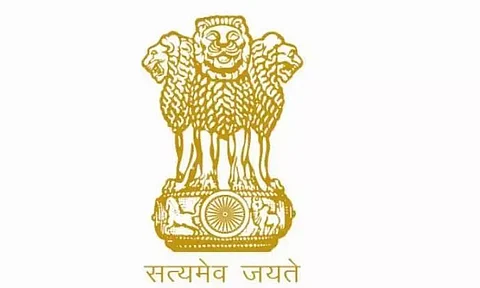
- Home
- Live Blog
- Breaking News
- Top Headlines
- Cities
- NE News
- Sentinel Media
- Sports
- Education
- Jobs

ITANAGAR/AGARTALA: While spats between Governors and State Governments take place often in the other States in India, the Northeastern States earlier witnessed such Constitutional and administrative tussles between the Constitutional head of state and the elected State Government.
Arunachal Pradesh's then Governor Jyoti Prasad Rajkhowa's decision to advance the Assembly session triggered political unrest in the border State and culminated in the imposition of President's Rule on January 26, 2016, followed by the intervention of the Supreme Court.
A five-judge Bench of the Supreme Court had, in July, 2016 quashed the Governor's order and paved the way for the return of the Congress-led Government headed by Chief Minister Nabam Tuki.
Rajkhowa's action to override the authority of Assembly Speaker Nabam Rebia and advancement of the Assembly session was seen as a move to topple the Congress Government and to favour Kalikho Pul's Arunachal People's Party supported by the BJP to form the Government with the defection of the Congress MLAs.
The Arunachal controversy started on December 9, 2015 when some rebel Congress MLAs approached the Governor seeking to impeach the Speaker, complaining that Rebia was trying to get them disqualified from the Assembly. Responding to the dissident Congress MLAs' request, Rajkhowa agreed and called for an emergency session on December 16, 2015 to take up the impeachment motion against the Speaker.
In the special session attended by 20 rebel Congress MLAs, 11 BJP MLAs and two Independents at a community hall, the impeachment motion was passed and Pul was 'elected' as the Leader of the House. The same day, the Speaker disqualified 14 Congress MLAs. The Gauhati High Court stayed the disqualification of the Congress MLAs and the Speaker's plea was turned down.
The Congress protested the Governor's action, but the Narendra Modi Government at the Centre imposed President's Rule in the State invoking Article 356.
The Supreme Court's intervention came after the Speaker and then Chief Minister Nabam Tuki approached the top court against the Governor's action and promulgation of President's Rule respectively.
Then President Pranab Mukherjee, following the recommendations of the Union Home Ministry, had sacked Rajkhowa in September, 2016, after he refused to quit even after being nudged by the Centre and adverse observations made by the Supreme Court.
Rajkhowa, a 1968 batch IAS officer, had retired as Chief Secretary of Assam before being appointed as Governor of Arunachal Pradesh on May 12, 2015 and he was the first gubernatorial appointee of the Narendra Modi Government.
Besides Rajkhowa, the then Tripura Governor Romesh Bhandari, a former diplomat, courted controversy over the alleged phone tapping of then Left Front Chief Minister Dasaratha Deb (1993-1998).
When Bhandari, also a former Governor of Goa and Uttar Pradesh, reportedly made comments about the administrative style of Deb, a father figure of the Communist movement in Tripura, it triggered a serious political controversy in the Northeastern State.
Also, three-term Assam Chief Minister Late Tarun Gogoi, who led the Congress Government in Assam from 2001 to 2016, demanded the removal of then Governor Padmanabha Balakrishna Acharya, saying he "does not know how to maintain his dignity" as the Constitutional head.
Gogoi's demand came after Acharya's reported statement that "Hindustan is only for Hindus" and his subsequent remark that Indian Muslims are "free to go to Pakistan".
Several former ministers of the Gogoi-led ministry and Congress leaders both at the Centre and the State demanded the removal of Acharya.
Former Government interlocutor and then Nagaland Governor RN Ravi, who is now holding the gubernatorial post in Tamil Nadu, made a series of comments about the law-and-order situation in Nagaland and these irked Chief Minister Neiphiu Rio and the ministers, forcing the Government to issue statements on the law-and-order situation.
Political commentator Apurba Kumar Dey said that the Governors always acted as agents of the Central Government.
"The Governors' decisions and public comments in most cases went against the governance of the ruling parties, resulting in ugly situations in many cases. Sometimes the Governors are in the right position and sometimes the State Governments took steps on political considerations.
"Considering these old issues, the role of Governors must be reviewed and transparent and specific guidelines must be outlined for a healthy and positive democratic environment," Dey said. (IANS)
Also Watch: